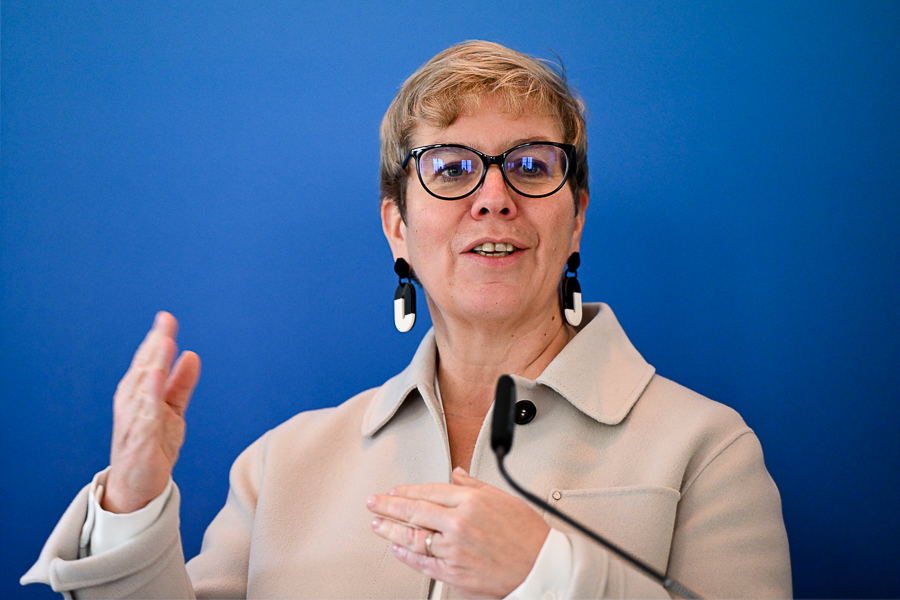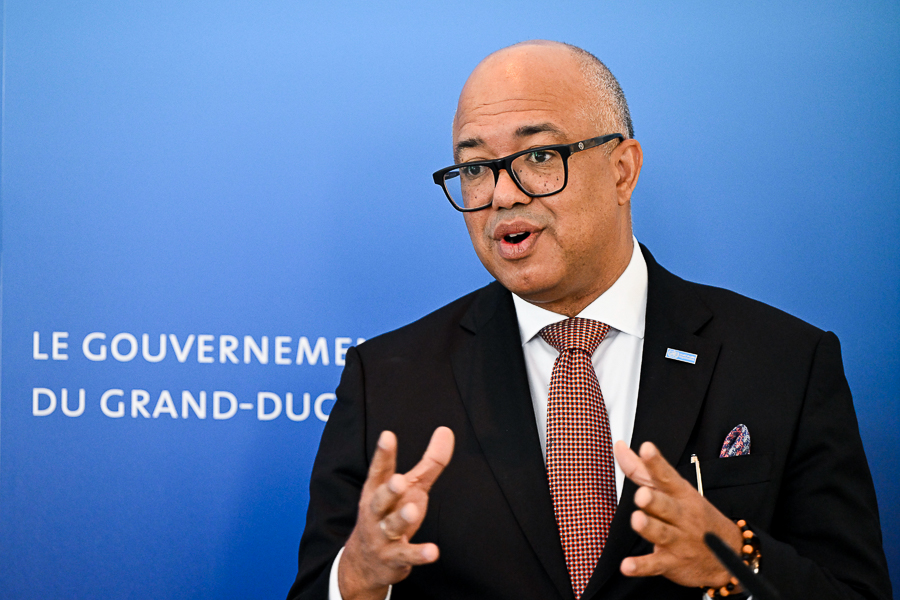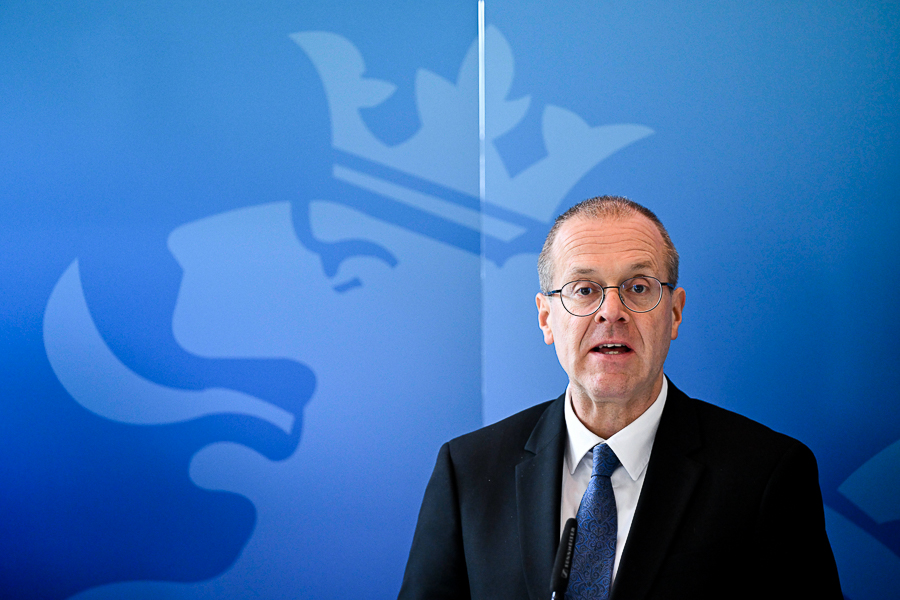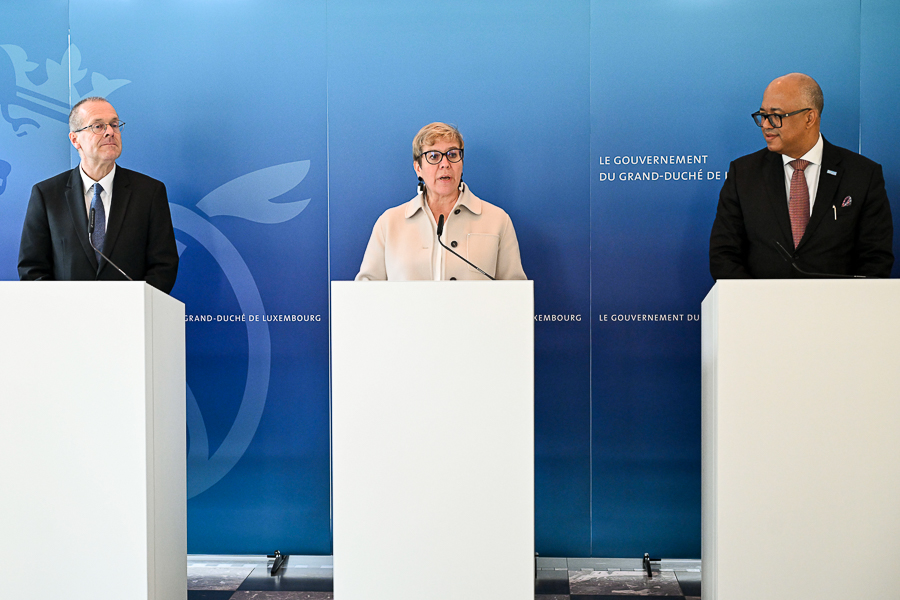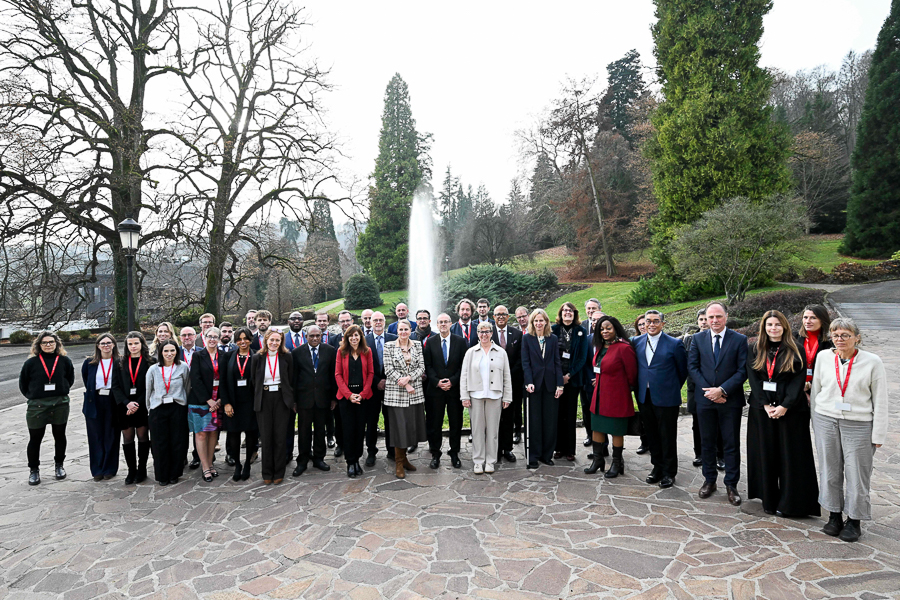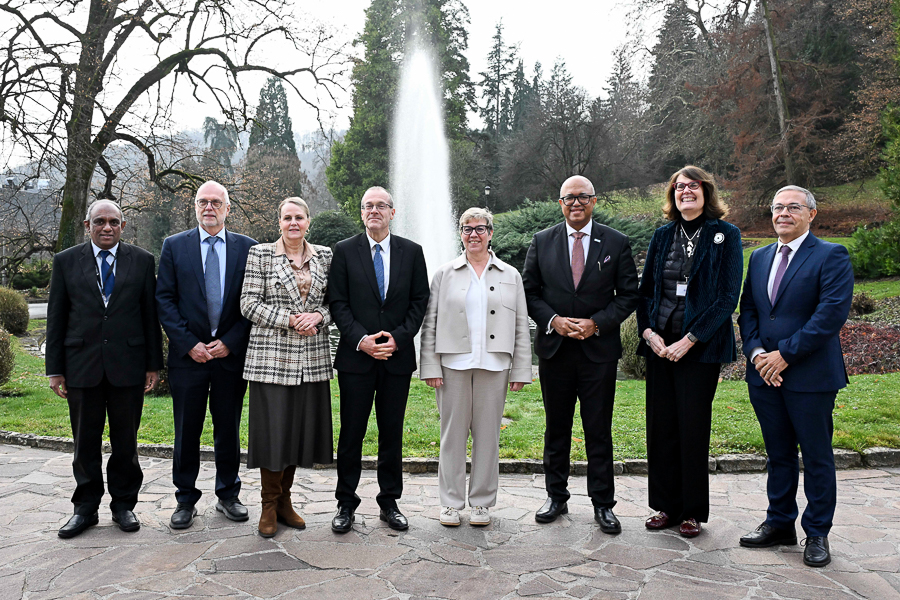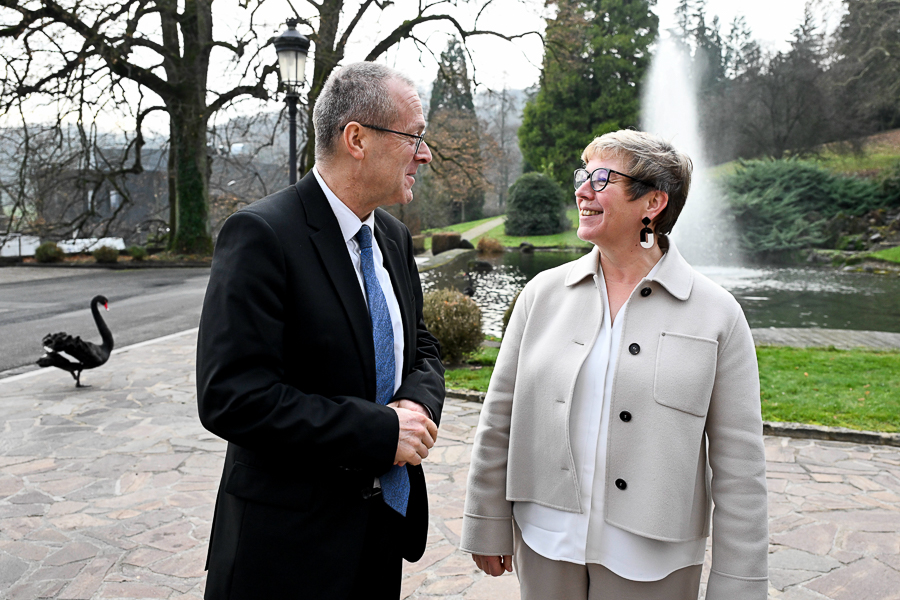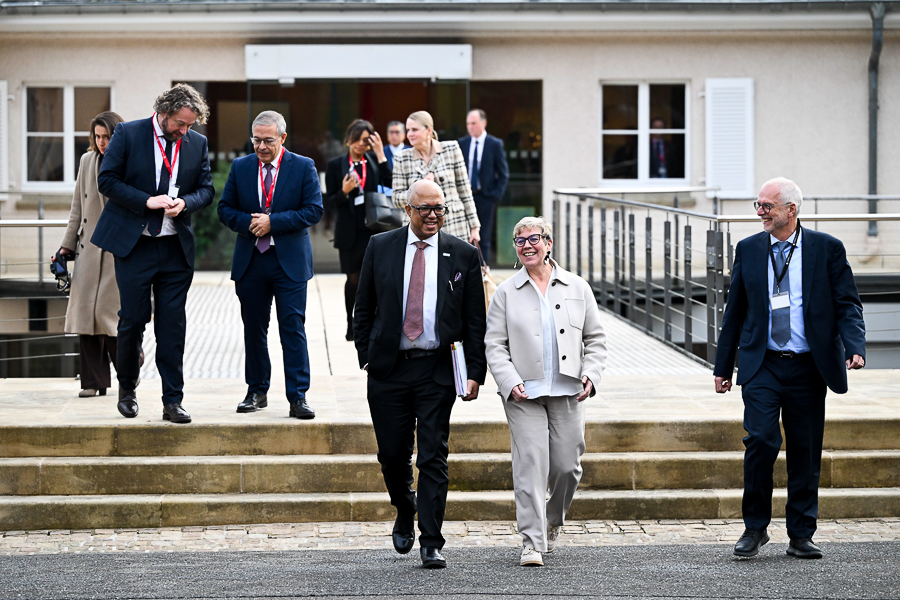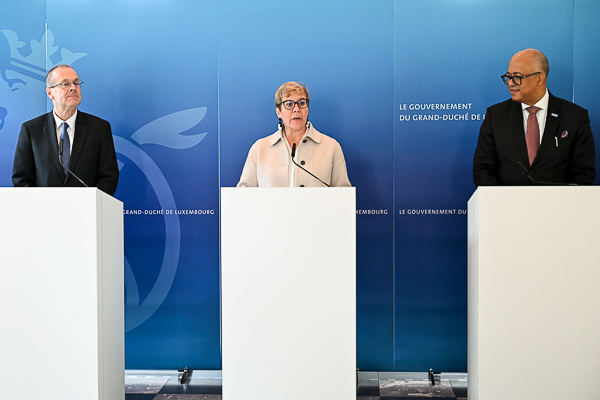 (L-R) Dr Hans Henri P. Kluge, WHO Regional Director for Europe; Martine Deprez, Luxembourg's Minister of Health and Social Security; Dr Chikwe Ihekweazu, Executive Director of the WHO Health Emergencies Programme;
Credit: © SIP/ Frédéric Sierakowski
(L-R) Dr Hans Henri P. Kluge, WHO Regional Director for Europe; Martine Deprez, Luxembourg's Minister of Health and Social Security; Dr Chikwe Ihekweazu, Executive Director of the WHO Health Emergencies Programme;
Credit: © SIP/ Frédéric Sierakowski
On Thursday 27 and Friday 28 November 2025, Luxembourg hosted the high-level mission of the Universal Health and Preparedness Review (UHPR) at Senningen Castle.
The UHPR is an initiative launched by the World Health Organization (WHO) to strengthen countries' preparedness for health emergencies.
Attendees at this meeting in Luxembourg included: Martine Deprez, Luxembourg's Minister of Health and Social Security; Dr Hans Henri P. Kluge, WHO Regional Director for Europe; Dr Chikwe Ihekweazu, Executive Director of the WHO Health Emergencies Programme; Sandra Gallina, Director-General of the Directorate-General for Health and Food Safety (DG SANTE) at the European Commission; and Dr Florika Fink-Hooijer, Director-General of the Directorate-General for the European Health Emergency Preparedness and Response Authority (DG HERA) at the European Commission.
According to the Ministry of Health and Social Security, discussions focused on the strengths and challenges of the Luxembourg public health system. The importance of effective cross-border and international cooperation was highlighted as essential to ensuring a rapid and coordinated response to health emergencies.
"COVID-19 alone was associated with almost fifteen million excess deaths in 2022, and since 2013 the number of health emergencies in the WHO European Region - including conflicts, epidemics and natural hazards - has doubled from 40 to 80. Meeting these growing challenges requires global collaboration, sustained preparedness and long-term investment," said Dr Hans Henri P.Kluge, WHO Regional Director for Europe. "Luxembourg's request to take part in a Universal Health and Preparedness Review sends a powerful message across the region: that even the most advanced health systems need to continue to invest in preparedness, resilience and solidarity. This is how we build trust, protect lives and ensure that our societies can thrive. In a world facing growing health threats preparedness cannot be an afterthought. The UHPR helps countries identify what matters most in their context, engage the highest levels of leadership and make resilience a long-term investment."
Dr Chikwe Ihekweazu, Executive Director of the WHO Health Emergencies Programme, stated: "The world is facing increasingly complex public health emergencies that are straining national and global systems. To protect our communities, we must break the cycle of panic followed by neglect. Preparedness must be constant, sustained and anchored in strong political leadership. This is a technical necessity and a strategic investment in resilience and stability for all countries. Luxembourg's Universal Health and Preparedness Review mission sends a clear signal that preparedness is a shared responsibility which transcends borders, sectors and income levels."
He added: "We congratulate Luxembourg for its leadership and encourage more countries to join the UHPR community. Together, through mutual accountability, solidarity and collective action, we can strengthen global health security and ensure that preparedness remains at the top of the political agenda."
The ministry reported that Luxembourg was "praised for its pioneering commitment to health security and its willingness to further strengthen its national capabilities." Participants also emphasised the need to continue working on various aspects of the health system: strengthening legal and strategic frameworks; improving data interoperability; consolidating stocks and logistics; developing specialised capacities and human resources; and finalising the National Action Plan for Health Security (NAPHS) to strengthen the country's resilience to health crises in the long term.
Moreover, according to the ministry, the UHPR is fully in line with the National Resilience Strategy, which aims to strengthen Luxembourg's preparedness for future crises. This strategy focuses on the robustness of the health system, continuity of care in exceptional situations, securing essential medical supplies and better coordination between public, private, civil and military actors. By extending these efforts, the UHPR makes it possible to refine the assessment of national capacities and further consolidate the country's resilience to health emergencies, added the ministry.
"Luxembourg's participation in the UHPR illustrates our desire to learn from the past and prepare collectively for the challenges of tomorrow. Public health knows no borders, and together we will be stronger," said Minister Deprez.

